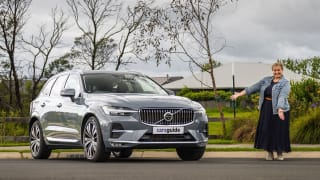
Is it Illegal to drive drunk on private property?

Yes, it's illegal, as drivers can be breath-tested and charged across a few different scenarios.
Stepping back from the issue of whether it is illegal to drink and drive on private property, the big question people should be asking themselves instead, is why they would want to try to use a car at all after they've consumed alcohol.
Scientists and countless research studies have proven you have less control over a vehicle as your blood alcohol concentration increases, which puts yourself at risk, not to mention any passengers or people unlucky enough to be in the vicinity of where you're driving.
Under the Road Transport Act 2013 NSW residents cannot be breath-tested at home (including your driveway or dedicated parking space), but police can arrest you following a fatal crash and test you for alcohol at their local police station within two hours of the incident (after two hours they cannot test you).
Police can charge you with driving under the influence in NSW, without a specific BAC reading, as they only have to prove you were affected by alcohol while driving. You can read more at this link.
Queensland are explicit with their drink-driving laws, as there is no definition of public or private roads in their legislation. This means that if the police suspect you're driving under the influence you can be breath-tested, be it a major freeway, a back paddock of your farm, or the McDonald's carpark.
You can read about the specific legislation for Queensland here.
Victoria take much the same line as Queensland, where drink driving in any form is against the law, be it on public or private property. You can read more at this legal blog.
Tasmanian police are allowed to breath-test drivers on private property if they suspect you've been driving under the influence in the last three hours. Interestingly, they are within their powers to arrest you and impound your vehicle, without warrant, if they suspect you of drink-driving.
In Western Australia the Road Traffic Act (1974) states there is no exception for drivers to not submit a breath test as requested by a police officer. Following a crash police can also request a breath test from anyone they suspect may have been a driver of a vehicle involved in the crash, however you don't have to provide a sample if more than four hours have passed since the event which led to the request for a sample.
Interestingly, South Australians are also able to be breath-tested on private property, however people can be charged if they were driving, attempting to drive, have recently driven, or are acting as a driver trainer, while under the influence and on private property. Police in SA can also request a breath sample if they believe you have committed a driving offence or are behaving in a manner which suggests your ability to drive is impaired.
There is no mention in legislation we could find of whether it is illegal to drive drunk on private property in the ACT or Northern Territory. However, that does not mean it is not illegal and doesn’t protect you from the police stopping you and charging you with a range of offences, including unsafe operation of a motor vehicle, or potentially a dangerous driving charge. For Summernats punters, remember that you can be done drink-driving on the cruise route inside the EPIC facility, as people have been charged in the past!
This article is not intended as legal advice. You should check with your local road authority to verify the information written here is suitable to your situation before driving in this manner.










Comments